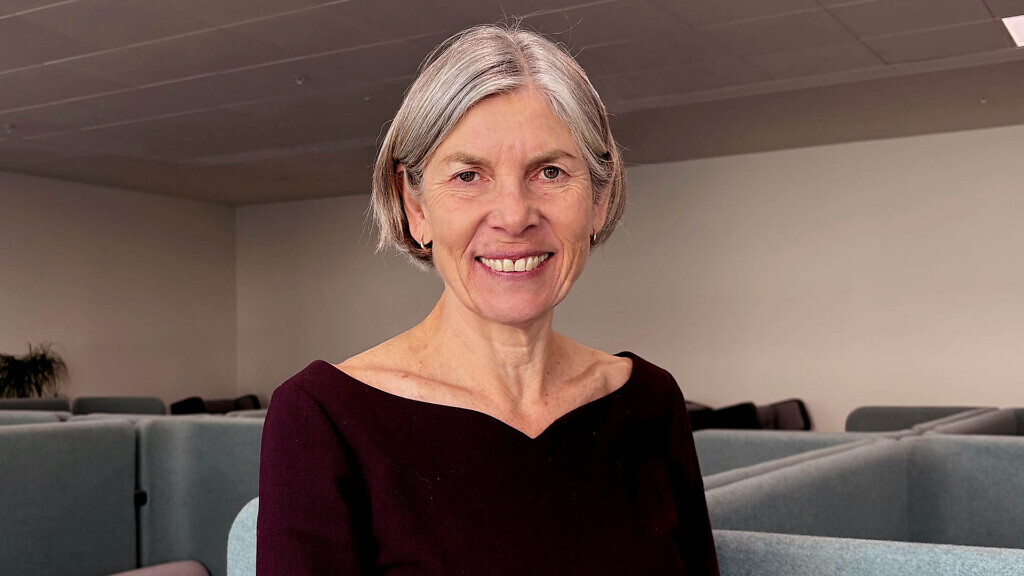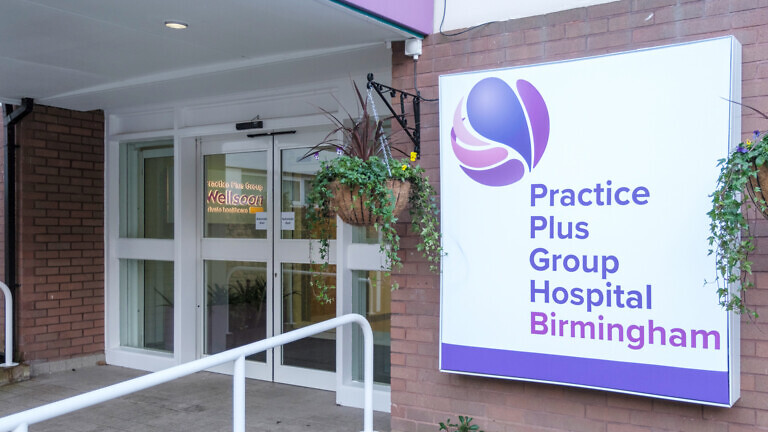The chair of NHS England explains why NHS effectiveness is as important as patient safety and how she intends to rebuild trust with the medical profession and the public.
Appointed chair of NHS England in March, Penny Dash is a former hospital doctor and partner at McKinsey, where she led the management consultancy’s healthcare practice across Europe.
Few understand the healthcare landscape in England as well as she does. She is perhaps best known for leading two independent reviews commissioned by the government into the operational effectiveness of the Care Quality Commission (CQC) late last year and into patient safety this year.
Here, she talks to Healthcare Today about patient safety and effectiveness, how to achieve change in the NHS and how to rebuild trust with the public.
“I believe there’s value in holding individual teams and boards to account – not in a punitive sense, but in a constructive one.”
It’s getting on for a month since the Dash Review was published. The dust has settled. Do you think patient safety is being taken seriously enough at board level across the NHS? And has your work shifted your own perspective on patient safety?
It’s still early days since the report was published, and several of the structural changes I proposed have yet to be implemented. In fact, some of the governance mechanisms we recommended – not only in my report but also in the 10 Year Plan – will take time to put in place.
As I said in the Care Quality Commission report and during the review process, I was struck by how heavily we’ve leaned towards prioritising patient safety – especially when compared to effectiveness. And underpinning that, I believe, is a lack of recognition of just how significantly different the scale of impact can be.
It is always hard to move bureaucratic organisations. Your recommendations are clear… but do you expect them to be implemented? Will it work?
It’s never going to be easy. The NHS is a vast and, in many ways, quite a disparate organisation. Depending on how you count it, there are around 300 separate entities – Trusts and Integrated Care Boards (ICB) – as well as approximately 10,000 GP practices. It’s not just the sheer scale that presents a challenge, but also the lack of uniformity across the system.
Other large organisations with more than 400 local offices, or even upwards of 10,000, tend to have a much greater degree of standardisation. They’re typically far better at evaluating different approaches, testing what works and then rolling out what’s deemed to be the best method.
Change on that scale is never easy, but the mechanisms do exist.
I also believe there’s value in holding individual teams and boards to account – not in a punitive sense, but in a constructive one. In many other sectors, people view feedback conversations as useful. In the NHS, though, we’ve tended to see it as performance management, which carries a negative connotation. But really, it should be about honest, open conversation.
That sort of ethos – an open, reflective culture of improvement – isn’t yet embedded in the system. It will take time, but it’s essential.

Streamlining the role of the centre and devolving accountability to local leaders is an admirable idea, but will this not just widen the gap between good-performing areas and those under pressure?
People do ask that question, and the answer really depends on what role the centre is playing. One could argue that, historically, the centre has been quite large and heavily involved in performance management, often in a negative or punitive way – which hasn’t always been helpful.
What we’re trying to do now is take a bit of a step back, while at the same time making the rules of the game very clear. The idea is that, with clearer expectations, we’re then in a better position to take action when those rules aren’t being followed. It’s not a magic solution, of course, but we hope this approach will encourage more local ownership and improvement.
“We have to take patient experience seriously. And the scale of it is huge and complex.”
Healthcare Today has repeatedly written about failings in maternity services. The point that keeps emerging is that Trusts are not learning from their mistakes. How can that culture shift be accelerated?
That’s a question a lot of us are asking. One of the key things is that we need to get the balance right. We have to take patient experience seriously. And, again, the scale of it is huge and complex.
How do we shift towards seeing complaints as a gift? How do we actively encourage people to give feedback – not necessarily in a way that feels like complaining? One thing I found interesting when we were doing the report was how many people disliked the word “complain”. They said, and I thought this was a brilliant reframing, “We don’t necessarily want to complain – we want to input”.
That struck me as particularly relevant in healthcare. People are often very nervous about complaining. And you can see why – if this is your GP practice, you’re not likely to go anywhere else. That relationship really matters.
The same is true if you’re under a consultant or a hospital team. Most people don’t want to be confrontational – but they do want to say, “This could be better”. That’s the mindset we need to embed. We need to measure patient and user experience far more comprehensively and in greater detail. We need to make it easier for people to provide feedback – not necessarily to complain, but simply to share what happened. We need to value that feedback and demonstrate that it matters. It should be something boards look at as standard.
If we were doing all of that – genuinely and systematically – I think we would start to see the culture shift.

Moving to NHS England, how do you plan to balance the need for long-term transformation with the pressure of immediate operational crises?
That’s one of the biggest challenges in the NHS. When you’re an ICB chair and a bit closer to the front line, you really see it. The truth is, most people – whether clinical or managerial – are spending up to 99% of their time on the here and now.
That’s precisely why we need chairs. It’s why we need non-executive directors. It’s why board meetings matter so much.
It is also why we need roles like directors of strategy. We need really strong people working on strategy so that, through those conversations and structures, we can say to all our colleagues: yes, the here and now matters, but we also have to carve out time for thinking about the future – about change, improvement and what’s coming next.
Given the seemingly permanent industrial action and low morale, what role should NHS England play in rebuilding trust with the medical profession?
This goes hand-in-hand with patient experience. It’s not the same, of course, but it’s closely related.
The current working experience in the NHS isn’t good. It wasn’t great when I was a frontline doctor, but back then, you just shrugged and got on with it. Nowadays, and quite rightly in many ways, people are saying that it isn’t acceptable.
That’s why I keep coming back to this issue – we need to focus on it. Because when staff are happy and engaged, they provide higher-quality care, better patient experience, safer care, and more effective care. The two are very closely linked.
Of course, it’s not going to change overnight. But we have to try to fix it. I’m confident that the workforce plan coming out at the end of this year will have a much greater emphasis on these issues.
“For me, that’s a de minimis: everyone should be able to make an appointment for everything – easily.”
NHS England operates at arm’s length from the government, but the public sees them as one and the same. How do you manage the relationship with the government?
There is a tension, of course – there’s always going to be a tension between a political leader and a management leader. At the moment, we’re in a situation where the latter is, to some extent, being treated as the former. I think the way you manage that is through good, honest conversations.
A large part of what I’m doing now is trying to put much better analysis in front of the political team, in front of ministers. If we can get stronger analysis and clearer thinking on: What’s the current state of play? Where do we want to get to? And what would it take to get from A to B? – then we can lay out all the things we could do.
And actually, most of it isn’t about politics. Most of it is good management: how do we get from here to there.
And how do you rebuild trust with the public?
First and foremost, we’ve got to deliver. That’s the bottom line. But it’s also important to put some context around what we’re doing – because one of the things we often forget is that we’re dealing with around 300 million contacts a year.
We’ve also got to fix the basics. Primary care is the thing most people interact with, and we have to get that right. People need to be able to book an appointment online. Most people under the age of 75 are baffled that you can’t. For them, everything else in life is booked online. You look at the 25-year-olds – they don’t even know how to make a phone call. They’ve never used their phone for that. So we’ve got to sort it out.
For me, that’s a de minimis: everyone should be able to make an appointment for everything – easily. These are the basic things we have to fix. Because unless we do, we won’t regain public confidence.
These aren’t huge, complex reforms – we’re talking about the basics. The basics of good communication. And the good news is we’re incredibly lucky: we live in a world with the digital tools to make this entirely doable.



